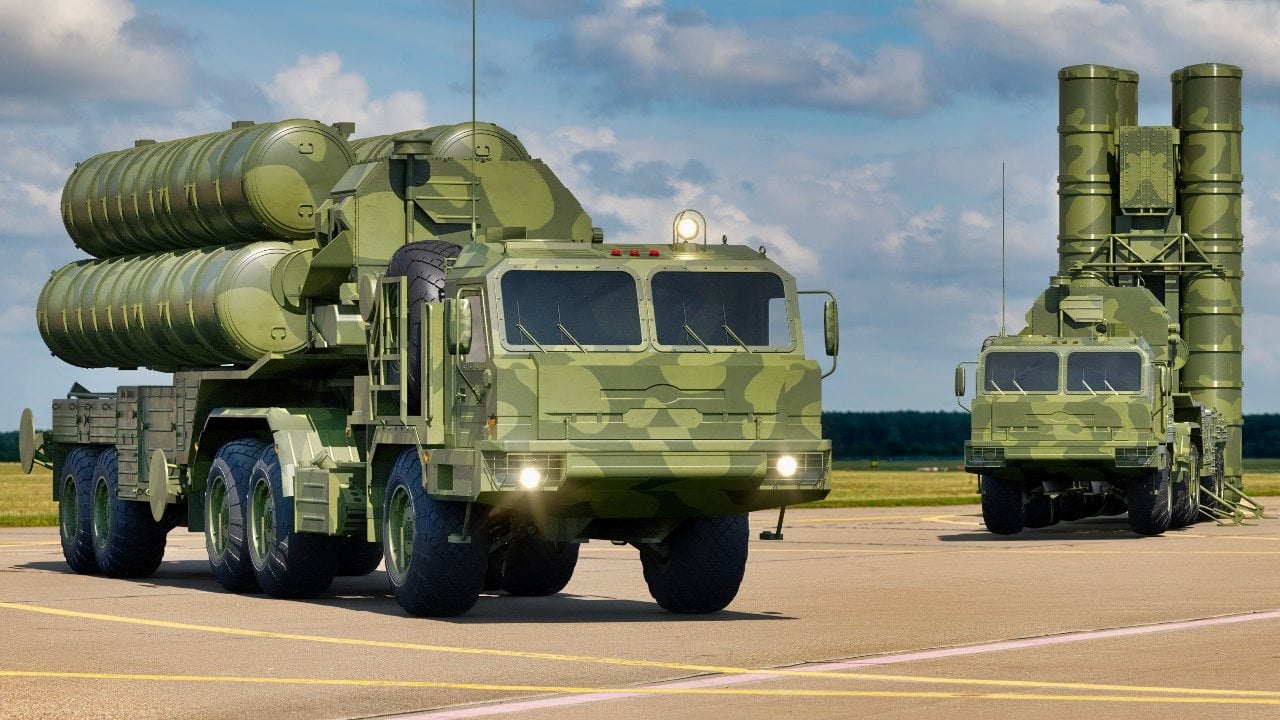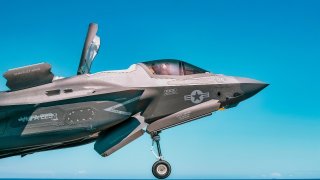Turkey Could 'Transfer' S-400 to U.S. for Possible Path Into F-35 Program
The U.S. has reportedly proposed a solution to Turkey's S-400 dilemma that would allow Ankara to retain the Russian-made air-defense system while transferring control to the U.S., possibly stored at Incirlik Air Base.
Summary and Key Points: The U.S. has reportedly proposed a solution to Turkey's S-400 dilemma that would allow Ankara to retain the Russian-made air-defense system while transferring control to the U.S., possibly stored at Incirlik Air Base.
-This move could lift sanctions and re-enable Turkey’s participation in the F-35 Joint Strike Fighter program, which was halted due to concerns over incompatibility between the S-400 and the F-35. Though Turkey has faced buyer’s remorse, it hasn't activated the system.
-The proposal, presented in July, offers a diplomatic solution, but it's unclear how Moscow will react if Turkey accepts the U.S. offer.
Could Turkey Rejoin the F-35 Program? U.S. Proposes S-400 Compromise
Ankara has remained firm in recent years that it would keep the Russian-made S-400 "Triumf" air-defense system, even though it meant it was expelled from the Lockheed Martin F-35 Joint Strike Fighter program. Washington and NATO leaders argued that the two platforms weren't compatible and that Turkey's adoption of both would compromise the security of the fifth-generation stealth fighter.
However, Washington has continued to try to nudge Ankara away from the S-400 (NATO reporting name SA-21 Growler) since the decision was made in 2017 to acquire it.
Greek-based media reported on Monday that the U.S. has "submitted a detailed proposal" that could resolve the matter. It would "formally allow" Turkey to keep the S-400, but essentially transfer the control to the United States. The air defense system would be stored at the ncirlik Air Base in the country's south.
Buyer's Remorse But Not Backing Down
Turkey has appeared to have a case of serious buyer's remorse following its acquisition of the F-35 as it has seriously strained relations with Washington and other NATO members, but it remains unclear exactly what Ankara feared.
Employing a Russian-made system when the most likely attack would come from Russia seemed like a bad decision to make, and it forced Turkey out of the F-35 program. In addition to the Turkish Air Force no longer on track to receive the fifth-generation stealth fighter, it also was a costly misstep for the NATO partner.
Turkey had been a part of the supply chain for the Lockheed Martin F-35 Lightning II and reportedly paid $1.25 billion to participate in the effort. Producing parts for the Joint Strike Fighter was expected to have generated $9 billion in revenue for Ankara, while six F-35 aircraft produced for Turkey were not delivered.
What is notable is that despite Turkey's determination to move forward to adopt the Triumf, the system hadn't been made operational as of last December when Turkish Defense Minister Ya ar Güler told reporters that the S-400 system would only be utilized when needed. It remains unclear exactly what that means, as it is impossible to plan for a surprise attack where the S-400 would be needed!
Internal Calls to Ditch the S-400
In August, Turkish businessman Cavit Caglar, who served as minister of state in the early 1990s, voiced publicly that Ankara should dump the S-400 – seek a foreign buyer, perhaps India or Pakistan – as such a move could win the good graces of Washington.
"I would remove the S-400s from Türkiye if I were in charge," the former minister told the Turkish-language newspaper T24. "Our plan was to either acquire additional systems or produce them domestically. We need to find a way out. We have good relations with Russia; the best course of action is to negotiate and explain that, as a NATO member, we cannot use the S-400s against NATO. We need to address this issue promptly."

Washington Offering a Way Out
According to this week's report, Washington's proposal has been received by Ankara – with U.S. officials stressing that Turkey wouldn't be violating any binding clauses regarding the sale of the S-400.
The plan was reportedly presented in early July. The transfer of the air defense system would be to the military base that is home to the U.S. Air Force's 39th Air Base Wing. If Turkey were to approve, the U.S. could lift the Countering America's Adversaries Through Sanctions Act (CAATSA) sanctions, which could lead to Turkey's reentry into the F-35 program.
"We are considering creative formulas and solutions. Ultimately, the president's final direction will be decisive, but we are closely following the political dimension. At least both sides agree that this issue has become a stumbling block in bilateral relations," Turkish Foreign Minister Hakan Fidan said in an interview with the Anadolu Agency (AA), per the Turkish-based DuvaR news outlet.
It remains unclear if Turkey will move forward with the proposal, but such a move probably won't win the approval of the Kremlin, as the U.S. would no doubt have access to the S-400, and perhaps even determine how to counter it.
Yet, at the same time, there is likely little Moscow could do in retaliation. Most importantly, it would be the best outcome for Washington and Ankara.
Author Experience and Expertise: Peter Suciu
Peter Suciu is a Michigan-based writer. He has contributed to more than four dozen magazines, newspapers, and websites with over 3,200 published pieces over a twenty-year career in journalism. He regularly writes about military hardware, firearms history, cybersecurity, politics, and international affairs. Peter is also a Contributing Writer for Forbes and Clearance Jobs. You can follow him on Twitter: @PeterSuciu. You can email the author: [email protected].
Image Credit: Creative Commons and/or Shutterstock.


